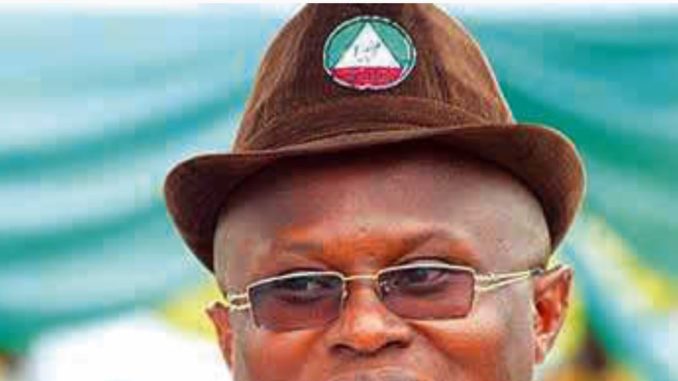
AN economist, Chika Onuegbu, has said that the economic indicators in the country for 2019 are unfavourable to Nigeria, adding that the year will be very tough for the country.
Onuegbu, who is the Chairman, Nigeria Union of Petroleum and Natural Gas Workers and the Petroleum and Natural Gas Staff Association Committee on Petroleum Industry Bill, warned that Nigeria must change its system of fiscal federalism to be able to be free from the fear of another economic recession.
Speaking in a telephone interview with our correspondent on Wednesday, Onuegbu observed that the Nigerian economy was still fragile, adding that all sectors of the nation’s economy were still in recession except the oil sector.
He pointed out that since the country’s survival was still dependent on the price and production level of oil, Nigeria was at risk of sliding back to full recession, adding that the 2019 budget would not be realised.
“The fact remains that 2019 is going to be a very difficult year for Nigeria and not favourable to Nigerians. I pray that it should not happen. But all economic indices point to this fact. The 2019 budget will not be realised based on the available indicators.
“So, things are going to be tough in 2019. Until we are ready to change our system of fiscal federalism and to really diversify and restructure our economy, we will not make progress. That is the painful reality.
“As long as we continue to practise that approach, Nigeria will not grow and all the efforts at diversification will not work because you cannot say you want to get healed and you refuse to take the bitter pill that helps you get healed.
“The Nigerian economy is still fragile. As a result of that, if the oil price goes down or oil production goes down or both of them, then the Nigerian economy will be back to recession,” Onuegbu stated.
READ ALSO: Obasanjo, Jonathan, others to get N2.3bn benefits in 20
He maintained that Nigeria came out of the last recession not because it addressed the structural problems affecting its economy, but because the country, at a point, produced more oil and sold at a higher price.
Onuegbu cautioned that a system where federal, state and local governments shared oil money every month end while the natural endowments in each state were abandoned was unacceptable and an indicator that the economy might face another round of recession.
“The important thing about the oil sector is that it is the oil sector that provides more than 80 per cent of the foreign exchange that Nigeria has. This means that if the oil price goes down, then the available foreign exchange will go down and this will impact negatively on our foreign reserves and of course our exchange rate will be impacted.”
“In Nigeria, we don’t like to tell ourselves the truth. The fact remains that we have to restructure our economy. The truth is that it (restructuring of the economy) is a very painful process, but we have to change our system of fiscal federalism.
This is the difficult thing that nobody is willing to do. Currently, the whole country feeds on oil. When the oil is produced and sold, state, federal and local governments go to FAAC to get their share. As a result of this, all the natural endowments in each of the states, including the fact that human beings are also endowments, are abandoned,” he said.
END

Be the first to comment